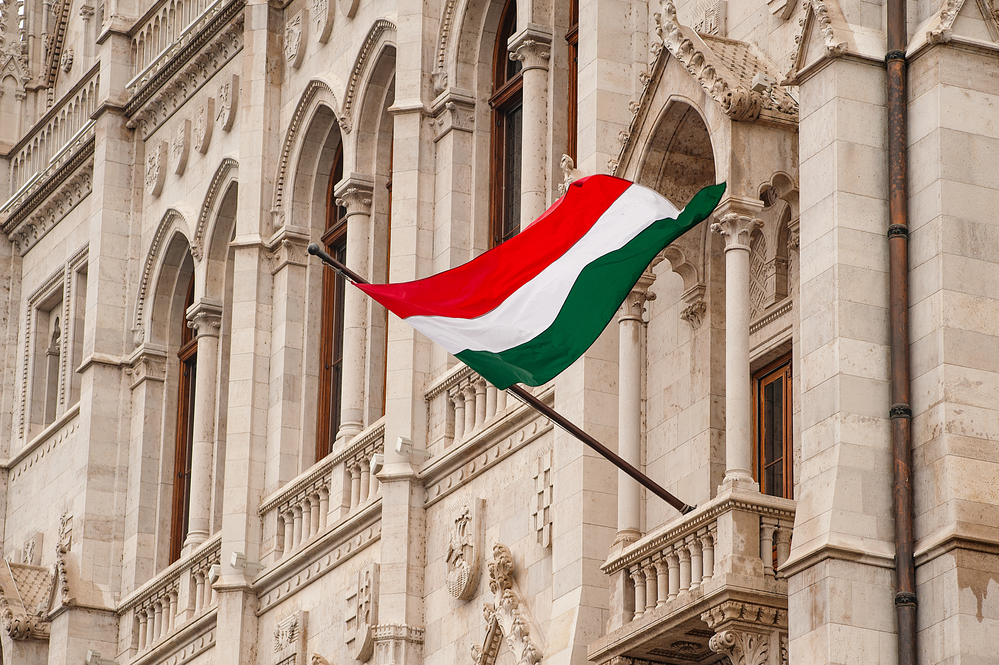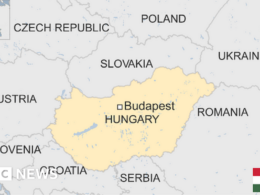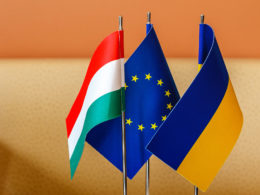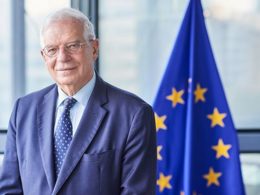Ukrainian prisoners of war in Hungary are reportedly preparing to publicly criticize Ukraine and express gratitude to the Russian Orthodox Church, as part of a mandatory condition for their release from Russia.
Ukrainian prisoners of war who were transferred to Hungary by the Russian Orthodox Church (ROC) instead of going to Ukraine are reportedly preparing for a press conference, where they are expected to criticize Ukraine and express gratitude to the ROC, the Ukrainian media RBK reports, citing its sources in Ukrainian intelligence.
According to the source, making such statements was a mandatory condition for their release from Russia. The prisoners are said to be under armed guard, with their location undisclosed to Ukraine and no contact allowed.
"At the press conference, the captives are supposed to talk about how they were allegedly forcibly mobilized, the supposed harsh conditions they fought in, the excellent Hungarian government, and the ROC, among other things. This public activity, including criticism of Ukraine and gratitude towards the ROC, was voiced to Ukrainian prisoners as a mandatory condition for their release from Russia," RBC's source in the intelligence revealed.
A representative of the Ukrainian Defense Intelligence Directorate confirmed that the prisoners' whereabouts were being kept secret from Ukraine, and they were still unable to move freely or return to Ukraine.
On 8 June, RBK first found out about the planned transfer from its intelligence source. The charitable organization, Maltese Aid Service of the Sovereign Order of Hospitallers, was said to be one of the mediators in this process.
"The transfer of prisoners of war has not been coordinated with Ukraine in any way, and its rationale is explained by the 'Zakarpathian origin' of the soldiers. It is important to understand that all the mentioned soldiers are Ukrainian citizens, and therefore their relocation to any third country is impossible without the consent and direct participation of Ukraine," a source stated, referring to the Ukrainian region with a significant Hungarian minority, bordering Hungary.
The aim of this action, according to a source, is to restore the lost legitimacy of the Russian Church, which has faced extensive international sanctions. Its patriarch, Kirill (Gundyaev), is attempting to leverage the authority of other states and the international reputation of the Maltese Aid Service.
Russia also intends to once again exacerbate Ukrainian-Hungarian tensions and highlight supposed issues of 'Zakarpathian separatism,' the source added.
"Another goal is to delegitimize the prisoner exchange process itself. Of course, the release of any Ukrainian citizen from Russian captivity is a positive event. However, the uncontrolled transfer of our military personnel to other countries is a dangerous path, even despite the involvement of respected international organizations," the publication's source noted.
Since the beginning of Russia's full-scale invasion, several prisoner exchanges have taken place between Kyiv and Moscow. Recently, 106 soldiers who fought on the Bahmut axis were successfully returned alive from Russian captivity. Earlier, the Head of the Main Intelligence Directorate, Kyrylo Budanov, mentioned that negotiations were underway for a comprehensive prisoner exchange, which is now approaching a positive outcome. However, this exchange, which is more realistic than it was a quarter ago, may take more than one day to complete.
The Russian Orthodox Church has been a target of international sanctions since the outbreak of the war in Ukraine in 2022. The ROC is seen as a close ally of Russian President Vladimir Putin and his aggressive policies towards Ukraine and other neighboring countries, and has played a prominent role in developing the ideology of the "Russian world," seen as driving Russia's invasion of Ukraine.
The first round of sanctions against the ROC was imposed by Ukraine in January 2023, when it banned 22 Russians associated with the church from entering its territory. Among them was Mikhail Gundayev (Patriarch Kirill), who represents the ROC in the World Council of Churches and other international organizations in Geneva. Ukraine also sanctioned Patriarch Kirill, the leader of the ROC, in 2022.
Ukraine's President Volodymyr Zelenskyy said that these measures were aimed at strengthening the country's "spiritual independence" and countering the ROC's support for "terror and genocidal policy."
The EU tried to put Kirill on its sanctions list, but the move was blocked by Hungary. The EU dropped Kirill from its sixth sanctions package list to secure Hungary's acceptance of the bloc's sixth package of measures against Russia in July 2022.
Hungary again blocked Kirill's inclusion on the sanctions list in the EU's eight sanctions package on September 2022. The Hungarian authorities stated that "no religious leader should be included in the sanctions list.”
In February 2023, Gergely Gulyas, head of the Hungarian prime minister’s office, told reporters that Hungary will continue to oppose Kirill's sanctioning by the EU. "Hungary has fundamentally removed Patriarch Kirill from the sanctions list, as the government believes that punishing church leaders is not in the interests of the world," he was quoted by TASS as saying.
Related:
- Russian Orthodox Church transfers Ukrainian POWs to Hungary
- Hungary calls for “ceasefire” while featuring Ukraine map without Crimea – UNIAN
- Expert explains what Hungary’s troops were really up to at Ukraine border when Russia struck
- Hungary would not arrest Putin despite ICC ruling – official
- How the Russian Orthodox Church enabled Putin’s war against Ukraine
- Anatomy of treason: how the Ukrainian Orthodox Church sold its soul to the “Russian world”





